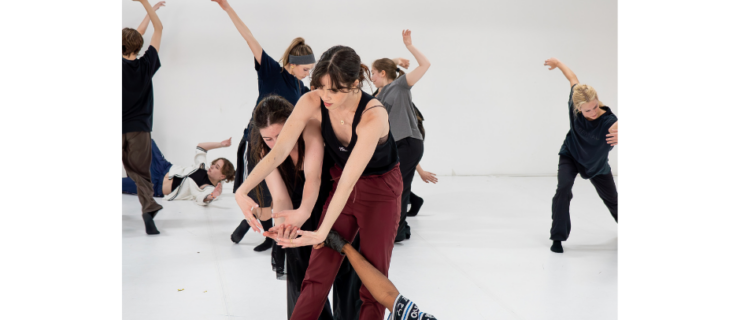Advice for Dancers
I just looked at your blog for performers and could relate to the pianist’s “high” when she felt like her fingers played all by themselves during her performance. It reminded me of my most exciting dance performances where the choreography took over and I forgot about everything else. You called it “flow.” How can I get it to happen more often?
Julie
Ridgewood, NJ
The theory of “flow,” which explains people’s optimal experiences, comes from a Hungarian-born psychologist in the U.S. whose studies of happiness and creativity are as notable as his famously unpronounceable name—Mihaly Csikszentmihalyi. Dr. C discovered that flow occurs when you are completely absorbed in an enjoyable but highly challenging activity that’s balanced by your level of skill. This task must require your utmost effort. Passive leisure activities, such as watching television or playing a video game that fails to tap your full potential, don’t produce this state of consciousness. Not surprisingly, my blog topic on the highlights of performers’ careers elicited several vivid comments describing what it feels like to be in a state of flow. I also shared my first memorable experience with flow as a dancer when I was on tour in Copenhagen and replaced an injured colleague in a leading role in Balanchine’s Brahms-Schoenberg Quartet. I’ve since had moments of flow when giving lectures, writing, or reading a good book. The trick is to find a task that stretches you mentally or physically. You can increase the likelihood of finding flow during a performance (and elsewhere) by improving your ability to focus on a specific goal. Yoga, meditation, mindfulness, and the Alexander Technique are all helpful.
Recently, one of the leading ballerinas in our company was fired during the season for no apparent reason. She was thin, in great shape, and a former favorite. It’s made me and the other dancers totally paranoid about our own futures because no one knows what caused this to happen. I’ve started to freak out over the smallest corrections and casting changes. How can I keep my nerves under control?
Terrified
Address Withheld
For all you know this dancer could have quit voluntarily and her firing may be a rumor. Still, I can certainly understand why you’re scared—especially when you don’t know the details of her situation. Speak with your union representative about the fine points of your contract. It might alleviate some anxiety. It’s also constructive to concentrate on what you can control. In addition to working on your technique, try to keep a positive attitude. Mental skills can help you gain perspective. For example, a small correction or change in casting is normal in any dance company, so please don’t treat these like catastrophic events. Likewise, just because you are currently feeling insecure does not mean that your job is in jeopardy. Be sure to spend time with friends outside of work, and practice non-dance hobbies that you enjoy to reduce stress. The rest is out of your hands. So try not to sweat it!
I just watched an awful reality show called
Dance Moms that made me very angry. Even supposing most of it is scripted, the message you get is that only a dancer with a controlling stage parent can become a professional. That’s simply wrong! Sure, my mother paid for dance lessons and drove me to class, but she never pushed me to work while sick or injured. I’m now in a wonderful ballet company. This show gives real dance moms a bad name.
Irritated
NYC
You’re absolutely right about stage parents! In fact, my first book, The Person Behind the Mask, which includes research on professional performers, reveals that few ever had a “stage parent.” Instead, the majority received healthy support from one or both parents. As you know, dancers require considerable parental time and financial backing to embark on a long course of training. Without a child-centered family to provide these resources, it’s difficult for aspiring performers to develop their technique enough to qualify for a professional career. Those who do manage to make it on their own are often plagued with self doubt. Yet stage parents pose an equally, if not more, serious threat. By becoming overly invested in their offspring’s career, they risk dampening their child’s motivation to perform. Stage parents who live vicariously through their children put them in a position of having to constantly please others rather than themselves, a situation often associated with depression. In addition, insisting that a dancer keep working rather than focusing on his or her physical or emotional health can lead to injuries or worse. While showcasing stage parents’ bizarre behavior on television may jack up the ratings for this program, it does nothing for the art form or the dancers.
Former New York City Ballet dancer Linda Hamilton, Ph.D., is a psychologist in private practice, the author of
Advice for Dancers (Jossey-Bass), and co-author of The Dancer’s Way: The New York City Ballet Guide to Mind, Body and Nutrition (St. Martin’s Griffin). Her website is www.wellness4performers.com.




